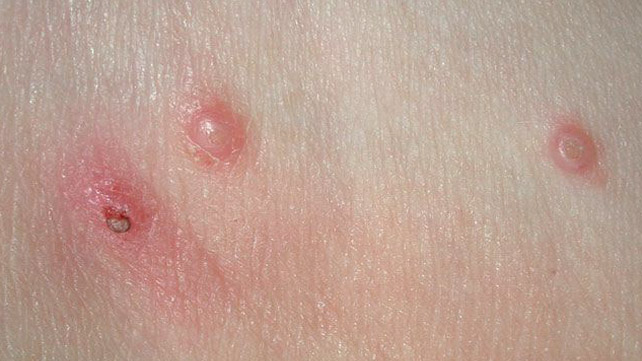Eczema (atopic dermatitis) presents itself as itchy, red, patchy and inflamed areas on the skin. Repeated scratching can lead to open sores that can allow bacteria, viruses and fungi to enter, resulting in infection.
Not all eczema will become infected, but good hygiene practices should be discussed with your patient to help avoid it. Clinicians should also be alert to any signs of infection so treatment can be administered as early as possible.
What’s the likely cause of eczema becoming infected?
Staphylococcus, a type of bacteria that naturally lives on the skin, can be a cause of infected eczema.
Normally staph is harmless and doesn’t enter the body. However, it can get into the blood stream through cuts, grazes or rashes – or eczema.
Just because a patient has eczema, it doesn’t automatically mean they’ll get a staph infection, however bacterial skin infections will be more likely. Staph infection can, in extreme cases, lead to blood poisoning so must be closely monitored if possible symptoms of sepsis occur.
What does infected eczema look like?
Infected eczema tends to look much redder and more angry than usual. It may also exude clear or yellow coloured discharge, as well as being very itchy, scabby and painful.
Other causes of infected eczema
Viral and fungal infections (particularly from Candida), can also cause eczema to become infected. Patients presenting with eczema may be more prone to herpes simplex viruses, so should avoid anyone with a cold sore in particular.
Eczema itself isn’t contagious, and being infected doesn’t make it contagious either. However, the patient should be strongly discouraged from scratching the skin, to avoid further spread of bacteria.
Could you recognise infected eczema and other common skin conditions?
Aimed specifically at nurses and other front line allied health professionals, PDUK is pleased to offer our very popular course worth 7 hours of CPD called Recognising and managing acute skin conditions in primary care. This one-day session will boost your confidence in assessing and managing common skin conditions, and is held online via Zoom for ultimate flexibility.
Covering the essentials of a range of common dermal conditions, the course is designed to boost your confidence in diagnosis and treatment for the best patient outcomes.
All course materials, evaluation and a certificate are included so get signed up today before places run out!


Comments are closed.